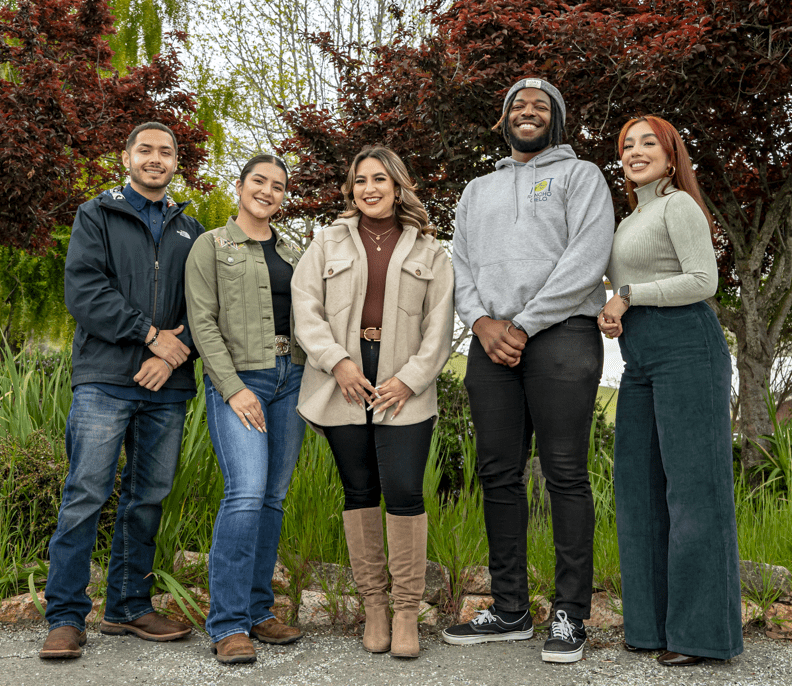
Since 2003, Rancho Cielo Youth Campus has addressed a need within Monterey County to provide relevant workforce development training for underserved youth. So they can earn a living wage, end the cycle of poverty and become productive members of society and an inclusive economy. Such an endeavor is not easy, particularly for young people needing additional support to change counter-productive lifestyles and face other substantial challenges at home and in their communities.
That’s why Rancho Cielo built a case management model focused on supporting high-quality education, removing barriers to success and rewarding student outcomes—transitions into post-secondary training programs, college or careers. It’s a framework that considers the whole student and what they require to thrive. It’s extraordinarily unique for a career and technical education institution, particularly a nonprofit, to employ case management. That’s the magic of Rancho Cielo — besides diploma education and vocational training, the organization invests in support services, enrichment programs, counseling and life-skills development that transform lives.
Rancho Cielo’s case management team comprises five case managers, one dedicated to each program and a lead case manager to help facilitate and coordinate their work. Case managers conduct formal meetings with their students weekly to meet each one’s needs. They also connect regularly with teachers and instructors and communicate often with parents and guardians. This keeps a pulse on the issues students face—inside and outside the classroom—that may interfere with their ability to pursue and focus on their education and future.
“We ensure their needs are covered so they can be their full selves. Otherwise, they may not be prepared for the opportunities we’re ready to give them,” said Gabriela Manzo, Rancho Cielo’s lead case manager.
Manzo explained that case managers’ focus on relationship building with students has made a difference in how they show up in school, for themselves and for each other. “Because we are there for them and have those relationships, do those check-ins, and talk about goals, they share important things that help us facilitate their day,” said Manzo. “They know someone cares whether they are at school or not.”
Wendy Guardado, case manager for Rancho Cielo’s construction academy, frequently sits in on students’ academic classes to observe how they are doing. She provides positive feedback when she notices them being good team players and leaders. That bolsters her relationship-building and students’ trust. “They know I’m there to see their progress, not only for behavioral issues,” she said.
Promoting Healing for Transformation
Rancho Cielo’s case managers also have specialized training in trauma-informed healing practices and culturally relevant programming, which they draw upon daily. It’s compassionate support that helps the youth process their trauma, envision possibilities and opportunities in life, and recognize the importance of the choices they make today.
This includes proactively employing non-punitive practices to de-escalate situations and resolve issues and avoiding certain words that trigger trauma (often unintentionally). For example, a conversation between a case manager and an instructor can help understand students’ specific situations and how to reframe their positive interactions. In turn, the case manager may explain a teacher’s perspective to students, helping them understand where the instructor is coming from.
When issues students face are beyond the case managers’ expertise, they can refer them to a full-time, on-site mental health professional (thanks to RC’s partnership with Harmony at Home). “Sometimes it’s scary [for students] to reach out to a therapist,” said Manzo. “There is a [cultural] stigma associated with asking for help. Some feel like they “shouldn’t complain.”
Having the therapist on campus has allowed them to get to know her. “She eats lunch with us. She takes walks and talks with students, eliminating that fear of opening up to [a stranger],” Manzo added.
Additionally, case managers help students facing legal issues, providing a ride or attending court proceedings for moral support. If students are on probation, case managers meet with their probation officers and share their progress at Rancho Cielo; they even write student character reference letters.
Setting Up Future Success
Many Rancho Cielo students will be the first in their families to attend college. Maria Alvarado, case manager for RC’s welding program, explained that case managers help with this entire process, from talking with parents about the benefits of higher education to navigating applications, scholarships and financial aid and introducing students directly to college academic counselors.
Case managers also partner with career and technical education instructors to connect students with local industry partners for apprenticeships, internships, and full-time jobs leading up to and after graduation. They help with resumes, applications, and interview preparation—things students may do for the first time.
Providing this holistic support has positively influenced students’ self-esteem, self-efficacy, and well-being. “I’ve seen huge differences during my sessions with them [over time] and how that influences their career goals,” said Alvarado. “To me, the small things make a big impact.”



